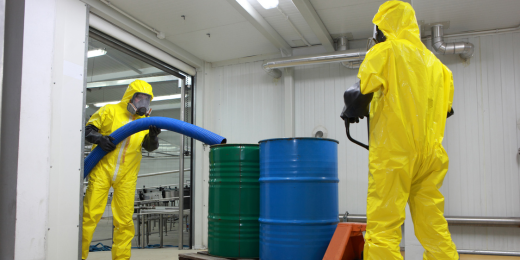What Does Reclaim Waste Mean?
Table of ContentsReclaim Waste Fundamentals ExplainedExcitement About Reclaim WasteThe Reclaim Waste StatementsThe Greatest Guide To Reclaim WasteUnknown Facts About Reclaim Waste
Explore the types, events, and kinds of fluid waste. Residential sewage waste refers to the waste and products from a residential sewage-disposal tank. This sort of waste is produced by humans in homes, colleges, and other buildings. This only consists of sewage-disposal tanks that have a drainpipe field. The appropriate management and disposal of domestic sewage waste call for fluid waste to be transferred to a sewer treatment plant where the correct approaches and devices are used to detoxify and deal with waste.
Industrial waste usually includes possible hazards, such as combustible materials or a combination of liquid and solid waste items, and requires a much more sophisticated and comprehensive disposal procedure. The disposal of business waste normally entails the filtration of waste before transport to make certain safe and correct disposal. Hazardous waste is created from by-products and overflow of commercial procedures and manufacturing.
This type of waste can not make use of the same sewer monitoring transport or procedures as septic or commercial liquids. The hazardous waste management procedure needs the inspection and testing of liquid waste before it undergoes the disposal procedure (liquid waste removal). Drainage waste is the fluid waste that originates from overflow and excess stormwater in very booming areas or cities
Runoff waste can trigger contamination and flooding otherwise handled appropriately. Discover more concerning sewage system cleansing and waste monitoring. Making certain appropriate waste monitoring can stop calamities and minimize environmental damage. Both people in property settings and professionals in industrial or production markets can profit from comprehending the processes and regulations of liquid waste monitoring.
The Definitive Guide for Reclaim Waste
Contact PROS Providers today to find out about our waste administration and disposal solutions and the proper means to take care of the fluid waste you create.
(https://www.awwwards.com/reclaimwaste1/)This supposed 'wastewater' is not only an essential resource however, after therapy, will certainly be released to our land, rivers or the sea. Made use of water from bathrooms, showers, bathrooms, kitchen sinks, laundries and commercial processes is recognized as wastewater.

water utilized to cool down machinery or clean plant and equipment). Stormwater, a type of wastewater, is overflow that flows from farming and city locations such as roofings, parks, yards, roadways, paths and rain gutters right into stormwater drains, after rainfall. Stormwater streams untreated directly to regional creeks or rivers, eventually getting to the ocean.
Reclaim Waste Can Be Fun For Everyone
In Queensland, a lot of wastewater is dealt with at sewer treatment plants. Wastewater is transferred from domestic or industrial sites with a system of sewage systems and pump terminals, recognized as sewerage reticulation, to a sewage treatment plant. City governments develop, preserve and operate most sewage treatment plants. Operators are certified under the Environmental Security Act 1994 to release treated wastewater at an acceptable environmental standard into rivers.
The Division of Natural Resources advises city governments about managing, operating and keeping sewage systems and treatment plants. In unsewered areas, local governments may require householders to mount private or house sewer therapy systems to treat domestic wastewater from commodes, kitchen areas, restrooms and washings. The Department of Natural Resources authorises making use of household systems when they are verified to be effective.
In some new communities, therapy of some stormwater to remove clutter, sand and crushed rock has begun making use of gross contaminant catches. Wastewater treatment happens in 4 stages: Gets rid of solid matter.
Wastewater then moves into large tanks where solids resolve and are eliminated as sludge. Grease and scum are skimmed from the surface. Utilizes little living organisms knows as micro-organisms to damage down and remove staying dissolved wastes and great fragments. Micro-organisms and wastes are integrated in the sludge. Gets rid of nitrogen and phosphorus nutrients that can trigger algal flowers in our rivers and threaten water life.
The Only Guide to Reclaim Waste
Nutrient removal is not readily available at all sewage therapy plants since it needs expensive specialized equipment. Clear fluid effluent produced after treatment may still include disease-causing micro-organisms - liquid waste removal melbourne.

The majority of wastewater flows into the sewerage system. Under the Act, neighborhood governments carry out authorizations and permits for ecologically pertinent tasks (Ages) including wastewater launches that may have a neighborhood impact.
Reclaim Waste - Questions
Tracking supplies accurate info concerning water top quality and can validate that permit problems are being fulfilled. The info gotten via surveillance gives the basis for making water top try here quality choices.